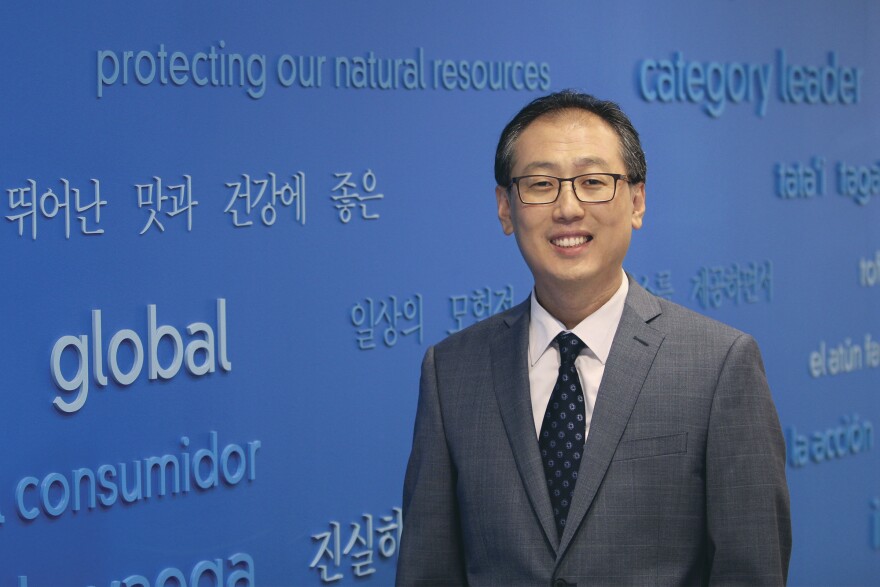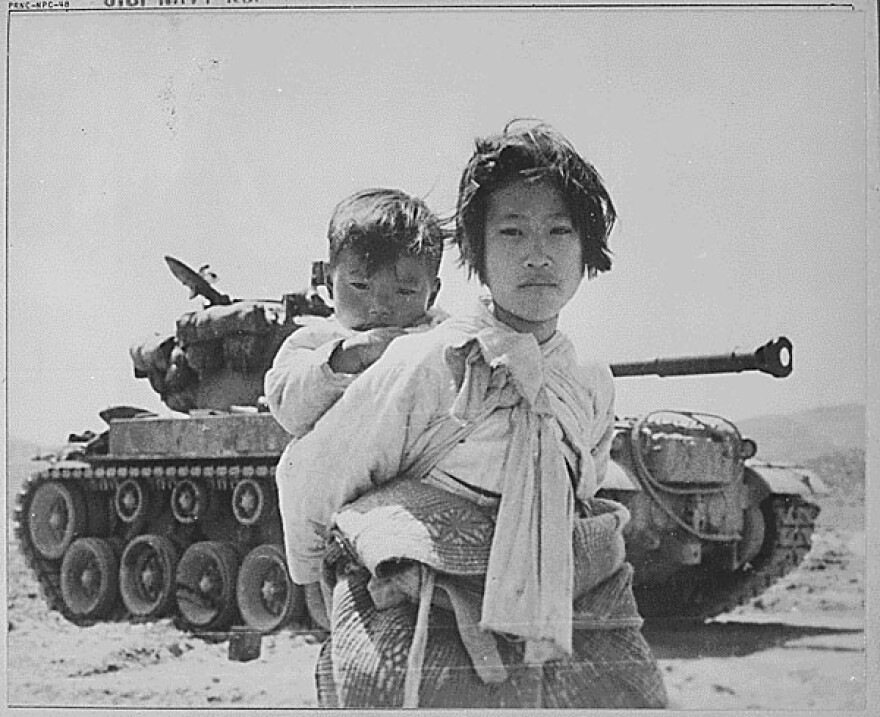When Andrew Choe was growing up in Seoul, South Korea, he said he didn’t think much about the Korean War or the men who fought it. That changed when he moved to the United States with his family a few years later.
“(Veterans) are so proud to see the developed, advanced Korea,” Choe said. “They are American citizens, of course, but I could feel that they felt Korea is like their child country, you know, the country that they helped to build in a certain way."
Today, South Korea is among a growing list of wealthy, advanced countries, and seen through the eyes of its former defenders, the more than half-century old conflict now bears a different meaning for Choe.
He'd lived the stories, but meeting them, he said, "that’s when I really felt it.”

The Korean War began in June 1950 when the communist North Korean army crossed the 38th parallel, invading and quickly overrunning democratic South Korea. U.S. leaders sent servicemen and women to South Korea's defense days later, and three years later, United Nations forces established a tentative peace with the North.
Choe, who moved to the U.S. after the conflict at age 12, came to Pittsburgh four years ago to run StarKist’s worldwide operations for its’ South Korean parent company Dongwon Enterprise. He said if the war had turned out differently, if South Korea had not prevailed, his life would be very different.
“It’s a scary thought if you think about it,” he said. “I visited South Korean missionaries who are in China and who were taking care of orphans from North Korea. And I met them. And they looked young and I thought they were 8 or 10 or maybe even 11 or 12. But when I asked their age, they were like 17, 18, 20. And they were very short and very skinny. They looked very young. And once you looked at them, it was shocking to see these people, because they didn’t have anything to eat.”
In the 20 years since he became a U.S. citizen, Choe has prospered. He graduated from UCLA and Yale, working for a variety of industries from Hong Kong to Karachi. Those successes came on the backs of American military sacrifice, he said.

“If there was a unified Korea under the communists, probably I wouldn’t be here, right? Because of their sacrifice and service, at least half of Korea is prosperous," Choe said. “So, that’s why our family, me, eventually I had an opportunity to come to the States, get educated, work, and now I’m CEO of StarKist. So, all those things, in a certain way, I owe to the veterans.”
Choe spearheads his company’s ongoing efforts to show appreciation to U.S. Korean War veterans, including donation funds and an annual recognition luncheon.
Pittsburgher Chuck Marwood, now in his 80s, said he appreciates Choe's recognition of “the forgotten war.”
“It’s unbelievable, the people from South Korea, how much they appreciate the service people did for their country,” Marwood said. "Everyday, if I would meet a South Korean, they would just thank us. For the past 10 years, we have had such a wonderful relationship with StarKist... They do so much for us and we appreciate their concern for us.”
Part of that concern involves the care and maintenance of the Pittsburgh Korean War Memorial, located just outside of the StarKist offices on the North Side.
“As they age, there are limited things they can do, so they want to keep the memorial clean and well-maintained so we have to work with theml,” Choe said.
"I’m glad I’m in this position to do (honor them)."
